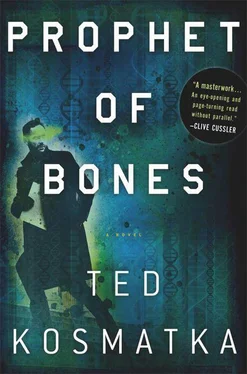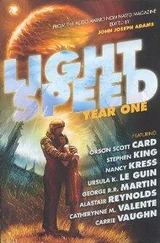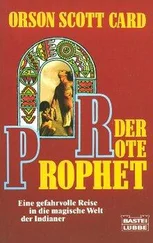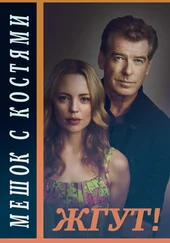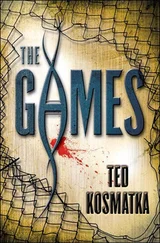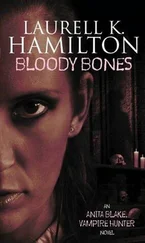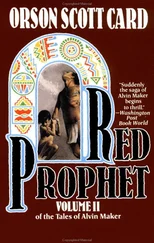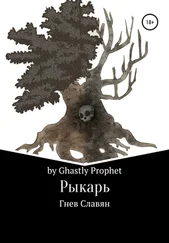Paul opened the desk and sorted through the contents.
He had a plan in mind, if he was caught. He’d say he was looking for an old folder he’d given Charles. An old data set that he’d lost copies of. It wasn’t a ridiculous possibility on its surface, but he doubted the excuse would hold.
Paul yanked open another drawer. Inside were pens and papers and paper clips. A lower drawer held stationery and user’s manuals. Below that, a box of throat lozenges and ten issues of Microscopy Monthly. Deeper strata held papers and receipts, and even an old credit card bill in Charles’s name.
Paul checked the filing cabinets next, leafing through the carefully ordered manila folders. He found template documents and data request forms dating back seven years—all neatly filed. He found copies of reports that went back even further: purchase orders, submission results, the entire record of everything Charles had ever done here. Or almost everything. He double-checked. The most recent file, the one dating to Charles’s last month, was absent. There was no record of what Charles had been working on just before he’d left.
Paul closed the cabinet and looked around the room. He must be missing something. He tried to put himself in Charles’s shoes but found he couldn’t. Asking yourself, “What would I do if I were Charles?” was an exercise in futility.
No one was Charles.
Paul had never known him well, but there were stories you heard.
Probably half the guys in the lab were geniuses. You had to have an IQ above 136 to be a genius. Charles was the kind of genius that other geniuses called a genius when they weren’t talking about something as definable as a score on a standardized test. His head didn’t work the same. Charles was different.
Paul knew he had to hurry. The longer he was in the room, the greater his chances of being caught. He stared at the whiteboard again, looking closer this time. In one corner he noticed a cladogram—a broad tree of life with various branches spreading outward and upward. The tips of the branches each had a different label: crow, owl, finch, penguin, ostrich, and on and on. Dozens more. These names were attached to lines that swept down toward the trunk of the tree before converging just beneath a horizontal dotted line. Everything below that dotted line was labeled God’s imagination . It was there that all the lines connected.
Paul stared at the whiteboard.
There were so many Charles stories.
They circulated around the lab.
Charles taking nine minutes to park his car, sliding into his spot again and again until he got it just right, each tire equidistant from the yellow lines.
Charles who always knew what time it was and never needed a watch.
Charles who startled.
Paul noticed the wastebasket then, overturned, wedged under the desk. He crossed the room, pulled it free, and looked down inside the small metal cylinder.
Inside the wastebasket was a jumble of tissues and wadded-up papers, but beneath the refuse, near the bottom, he saw the corner of a manila envelope peeking out. He bent and picked the envelope out of the trash. It was heavy. He opened the top and upended the contents onto Charles’s desk.
Several sheets of eight-by-ten photographs spilled out in a long line, facedown, like the pile in a game of rummy. Along with the heavy photos was a single piece of white printer paper, folded neatly in half.
Paul unfolded the paper. On it was a list of words:
Grayson Group
The Smith Museum
Carner Laboratories
The Gernert Institute
The Field Museum of Natural History
Johnston Laboratories
Paul folded the paper in quarters and shoved it into his pocket for later consideration. The Field Museum. Some memory tickled. What was it about the Field Museum? Why did that ring a bell?
Paul looked down at the backs of the photos on the desk. He flipped them over.
They were photographs of bones.
Grayish white. In situ.
The Flores bones. Or something like them. These were different shots than the ones he’d seen before. The angle was different; they’d been taken from a few feet up, but there was no doubt what the pictures showed. Paul looked through the photos one by one. The last photograph stopped him. It was a skull. A different specimen than the one he’d seen. More complete. A full upper mandible, two eye sockets, a right temporal bone.
Paul slid the photos back into the manila folder and turned toward the whiteboard again.
God’s imagination.
One early morning, when Charles had been parking, another researcher had beeped his horn. Charles startled and jammed his foot on the gas, jumping the curb and taking out a huge swath of fencing that bordered the parking lot. He then backed out and pulled away, tires squealing. He drove home and didn’t come back to work for three days.
When he finally did return, he stayed in his office.
The management was aware of the situation and sent a memo to everyone (such memos were often sent to everyone, so that the person it was really intended for wouldn’t feel singled out) that mentioned an accident in the parking lot and suggested that, while no one was in any kind of trouble, the party or parties responsible should come forward so that insurance information could be exchanged.
Charles didn’t come forward. He drove his smashed car to work every day and parked at the far end of the lot. Black paint from the wrought iron had rubbed off on the side of his car. A six-year-old could have looked at the car and the fence and put two and two together. Charles drove his bashed-in car to work every day and stayed in his office.
The managers convened a meeting, and they ultimately decided that the company would simply fix the fence. They never went to Charles. They weren’t sure how he’d handle it.
Charles didn’t care about the money. He didn’t need money or want money or pay attention to money. Paying for the fence would have been easy for him. He was just afraid of being in trouble. That’s why he hid.
Paul glanced over at the filing cabinet, thinking about the empty spot where the last file had been removed. “Why did you leave, Charles?” he said aloud. “What forced you out in such a hurry?”
He stared at the formulas scrawled in Charles’s indecipherable hand. “What was it that you found?”
Bone cannot lie.
Bone has no opinion, no cultural bias. It cannot be argued out of existence. If you stop believing in bone, bone does not notice, or care. It will still be there, in the ground or in a museum drawer—an answer to itself.
Paul stood in the doorway of the bone lab, watching Hongbin unpack the latest box of samples. He hadn’t been down here since the transfer. He knocked on the door.
“Ah, so you’re back already?”
“What can I say? I missed you.”
“It was only a matter of time,” Hongbin said. “How’s it going?”
“Slow. It’s a Monday.”
“You’ve got to climb the peak of that activation energy demand, huh?”
“Something like that.”
“How’s the fourth floor treating you? Is it everything we always dreamed it would be?”
“And more.”
“So champagne flows from the water fountains?”
“Of course not. We get our champagne in volumetric flasks, like civilized folk.”
Hongbin shook his head sadly. “You’re just like the rest of them. In it for the glamour.”
Paul moved farther into the lab and laid a manila envelope on the lab bench. “But the osteo lab still gets all the action, I see. What do you have there?”
Hongbin shrugged. “The usual,” he said. “Coded samples. No idea.”
“They asking for the full prep?”
Читать дальше
